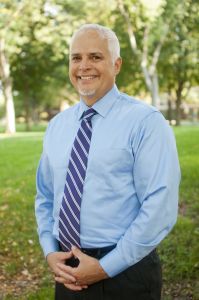What matters most: Sowing compassion

As a college whose peacemaking roots run deep, naming one of our core values “peacemaking” seems obvious to me. Adding the adjective “compassionate” to peacemaking underscores the blessing peacemaking can be. However, it also cautions that making peace can sometimes be a cruel and unusual affair in need of a modifier. Is it possible to ‘kill’ others softly with our songs of peace, our attitudes of peace, our peaceful purities and pieties?
Our many different life experiences, times and cultures inevitably shape our diverse understandings of what it means to be a compassionate peacemaker. Scripture says, “Jesus is our peace,” full of divine compassion. The Dalai Lama declares peace to be “the very manifestation of human compassion.” Islam means “peace,” invoking Allah as “All Compassionate and Merciful.” I hope, then, that our understanding of the meaning of “compassionate peacemaking” will be as deep and wide and fully divine and human as experienced in life itself.
Sometimes the rule of law, the responsibility to protect the weakest among us, is compassionate peacemaking. Al Mackowiak, a 39-year veteran of the Goshen Police Department and now head of campus safety and security, demonstrates compassionate peacemaking by dedicating his life to protecting the most vulnerable in our society.
At other times, civil disobedience is compassionate peacemaking. Lois Gunden Clemens ’36 risked her life to harbor Jewish refugee children at a French orphanage during World War II.
Sometimes the innocent child or youth can be our best teacher of compassionate peacemaking. A year after a Taliban zealot shot Malala Yousafzai, 16-year-old Pakistani Muslim, for attending school, she spoke words of profound peace at the United Nations in 2013, declaring education for all to be an action of highest compassion.
Compassionate peacemaking can also mean breaking down walls that divide us here on campus. Last year Jan Zawadzki ’13, from Germany, gave a speech at convocation describing barriers that divided international students and others, Mennonite students and non-Mennonite students. He challenged all of us to make friends with people different from us.
So, let us renew our commitment to become compassionate peacemakers who tear down walls that still divide us. Let us pursue a compassionate peace that is more relational than legal, more compassionate than particular and more lasting than righteous. In whatever form our peacemaking takes, let compassion reign.
– Dr. James E. Brenneman, President of Goshen College




